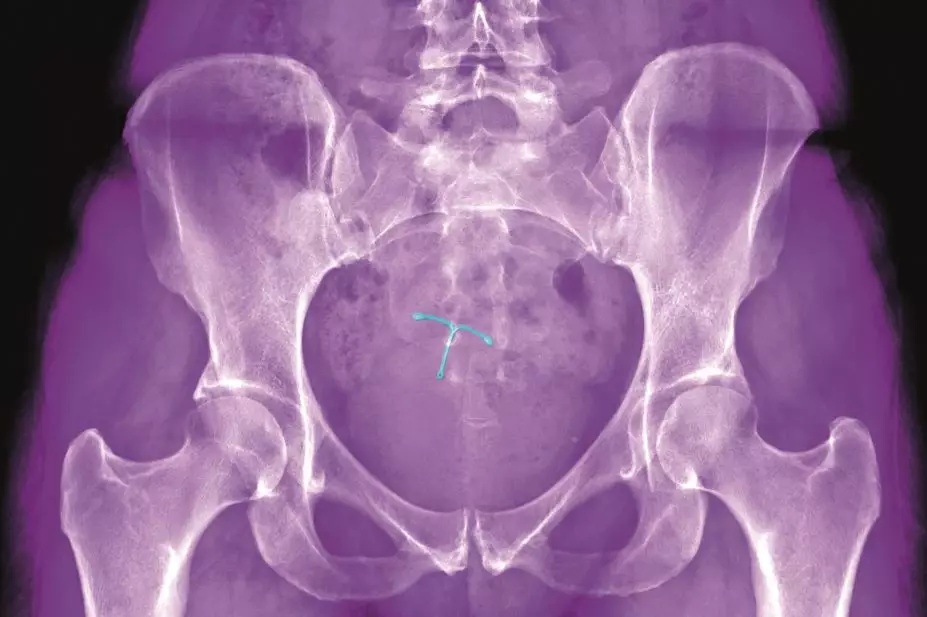
BSIP SA / Alamy Stock Photo
Most women suffering from heavy menstrual bleeding can be safely and effectively treated by their GP and do not need to be referred to secondary care for a surgical intervention, a large study has found.
The five-year analysis involving 571 women aged 25–50 years from 63 general practices in England found that use of a levonorgestrel intrauterine system, such as the Mirena coil, the oral contraceptive pill or tranexamic/mefenamic acid were all effective treatments for the condition.
National guidelines already recommend these options in the first instance for women with heavy menstrual bleeding, but an audit of care in England and Wales in 2014 found almost one-third of women had received no previous medical treatment before referral to secondary care, with more than 40% having surgical intervention in the year following first attendance at hospital.
Joe Kai, leader of the study who is a GP and professor of primary care at the University of Nottingham, says it is encouraging news for women who do not realise help is at hand or who are nervous about possible treatment options.
“Women were badly affected by heavy menstrual bleeding when they entered this trial, with most having problems for over a year beforehand,” he says.
“We know some women may be reluctant to seek help or be unaware that treatment is useful. This trial shows women can be helped very considerably by treatments from their GP alone, with most avoiding hospital procedures up to five years later.”
Kai adds that knowing the treatments were similar in their effectiveness over time would help support decisions based on individual preferences and circumstances.
The researchers hope the results will reassure women and GPs that medical therapies are effective and cut high rates of surgical intervention.
Around a quarter of women aged 18–54 years are affected by heavy periods, with one million patients seeking help for the condition each year, accounting for 12% of gynaecology referrals.
The study, funded by the National Institute for Health Research, randomly assigned eligible women to receive either a levonorgestrel intrauterine system or usual treatment, which included oral tranexamic acid, mefenamic acid, norethisterone, a combined oestrogen–progestogen or progesterone-only oral contraceptive pill. A questionnaire was used to assess the impact on each woman’s social life, psychological and physical health, work and family life, and any practical problems.
After five years, both groups had similar and significant improvement in the heaviness of their periods. There was no significant difference in the number of women who had gone on to have surgical treatment, rates of which were low in both groups at around 20%.
Generic quality of life scores were similarly improved in both groups and there was no difference in sexual activity scores or serious adverse events.
Reporting the findings in the British Journal of General Practice
[1]
(online, 11 October 2016), the researchers say the results emphasise the feasibility and importance of treating women in primary care.
Mary Ann Lumsden, senior vice president for strategic development at the Royal College of Obstetricians and Gynaecologists, says around 80,000 women are referred for the first time for heavy menstrual bleeding each year in England and Wales, with around 30,000 of these women undergoing surgical treatment.
“The results of this trial demonstrate that, for some women, GP-prescribed treatments, which are recommended in the National Institute for Health and Care Excellence guideline on heavy menstrual bleeding, are also effective in the long term,” she says.
“This is welcome news for women with heavy menstrual bleeding, especially those reluctant to attend hospital and who wish to avoid more invasive treatment.”
References
[1] Kai J, Middleton L, Daniels J et al. Usual medical treatments or levonorgestrel-IUS for women with heavy menstrual bleeding: long-term randomised pragmatic trial in primary care. Br J Gen Pract 2016. doi: 10.3399/bjgp16X687577


